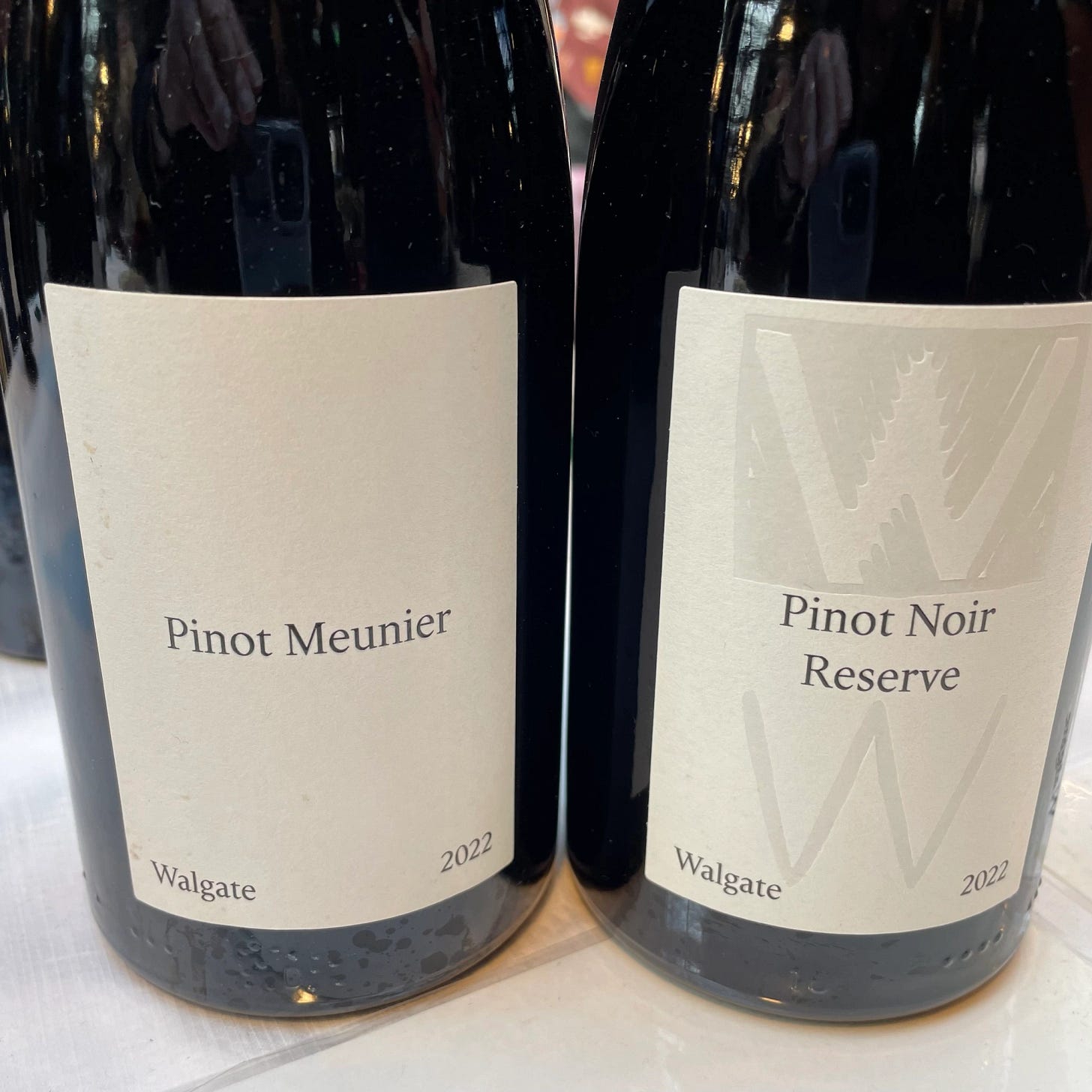This is the final part of my natural wine odyssey. The first two instalments looking at origins and culture have certainly hit a nerve. I’ve been accused by the provisional wing of the movement of not understanding socialism or natural wine and I’ve had some interesting comments from winemakers (see below). In this final chapter, I’m going to have a look at the legacy of natural wine and ask whether there’s life in the old dog yet.
For many, Ben Walgate is Mr English natural wine with his pet nats, skin contact wines and blends of esoteric grape varieties. His company Tillingham gained a cult following with listings at trendy bars and glowing write-ups in the press while the vineyard with its rooms, bar and restaurant became a destination for off-duty models and actresses in need of sourdough pizza, yoga and low intervention fizz. I found Tillingham and Walgate fascinating so I devoted a chunk of my book to them, but with a few exceptions I wasn’t a big fan of the wines.
But he said recently he is “uncomfortable about being described as a natural winemaker and has been for some time now. “ He continued:
“Ultimately this comes down to quality, if we are awash with natural wines that are dirty, made poorly, released too young, before they are ready, no wonder the end is nigh for natural wine”.
He left Tillingham in 2022 and set up a new venture in nearby Rye called Walgate & Co. He invited me down to visit in 2023 to taste some wines and have a chat. When I’d met him previously at Tillingham in 2022 he had seemed preoccupied and somewhat edgy - though that might be the effect I have on people. On a warm September afternoon a year later, Walgate seemed like a new man, relaxed, happy and open.
We chatted and tasted some wines. They were all made at Tillingham but weren’t the orange and other unusual wines that had made his reputation. Instead they were more classically styled, a chardonnay, a pinot noir and a traditional method sparkler. Last year, Walgate & Co. wines were launched with a tasting in London. There were some that nodded to his experimental past, a qvevri wine made with chardonnay, pinot noir, gamay and pinot meunier all fermented together, but also a delightful pinot blanc which reminded me of something from Northern Italy and a very successful 2022 Pinot Noir Reserve which I think will age beautifully.

The other big change is the packaging: simple chic labels, more Savile Row than Hoxton Square. At Tillingham it was often hard to tell which wine was which by looking at the label. They were like a puzzle you had to work out, which for me is very naturalista. Walgate explained that many importers and agents had told him that the market is saturated, natural wines simply aren’t selling like they used to.
Other winemakers are also trying to distance themselves from natural wine as London sommelier Donald Edwards explained:
“I spoke with Chris Alheit earlier in the year who is fanatical about hygiene, indigenous ferments, dry farmed and organic vines, no sulphur until a bit pre bottling and his wines are whistle clean and world class in every aspect. He was adamant that even though his lack of additions puts him in the natural category that is very much not how he wants his wines to be viewed..”
Also Edwards thinks there’s an element of the enfant terrible generation simply growing up: “winemakers who started out being all about being as minimal as possible and just mature into making small adjustments / pre bottling sulphur in pursuit of making genuinely good wines”. One such is Robert Cripps, formerly of Domaine du Poujol in the Languedoc and now with a venture called Granite Post in Galicia. He commented:
“I went a bit mad for making what I thought were vin nature between 2000 and 2005. Even so, our wines were too clean for hardcore Parisian natural wine bars which led me to the understanding that some people wanted the unpalatable as a sign of their dedication.”
He wasn’t happy with how his wines tasted unfiltered and with low SO2. After he moved away from a dogmatic regime he made: “nicer, more stable wines.”
So is Walgate right, is the end nigh for natural wine?
Keep reading with a 7-day free trial
Subscribe to Drinking Culture to keep reading this post and get 7 days of free access to the full post archives.



